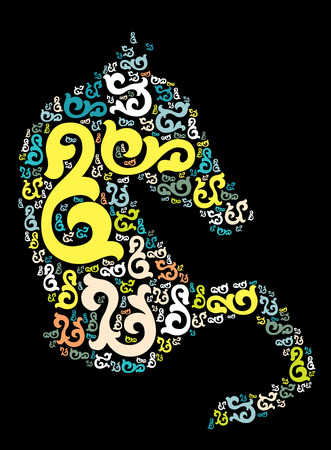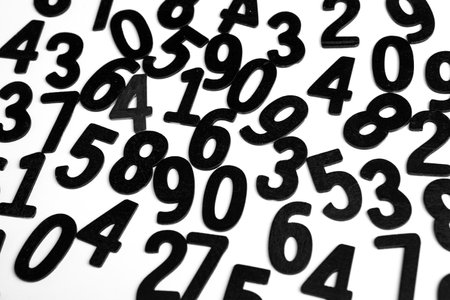Introduction to Lucid Dreaming and its British Context
Lucid dreaming, the fascinating state in which a dreamer becomes aware that they are dreaming and may even exert control over their dream narrative, has long captivated both scientific minds and spiritual seekers alike. Within the United Kingdom, this phenomenon weaves seamlessly into a tapestry of folklore, psychological inquiry, and communal tradition. From Shakespearean references in “A Midsummer Night’s Dream” to the cryptic prophecies of Merlin, the British Isles have been home to tales where dreams hold profound meaning and power. In more recent times, lucid dreaming has also found its place in the psychological lexicon—studied by British researchers as a tool for self-discovery and emotional healing. This unique intersection of myth and science imbues lucid dreams with layers of symbolism that are distinctively British, informed by centuries-old superstitions, royal omens, and the stoic pragmatism characteristic of local culture. As we embark on this exploration of dream symbolism through a particularly British lens, we begin to see how lucid visions are not merely night-time curiosities but are stitched tightly into the fabric of our collective understanding, offering spiritual insights as varied as the landscapes of Britain itself.
2. Common British Dream Symbols and Their Meanings
Dreams are a tapestry woven from both personal experience and cultural memory. In the UK, certain symbols frequently surface in our nocturnal narratives, each bearing its own cultural resonance and spiritual undertones. Below is an exploration of quintessentially British dream symbols, what they might signify, and how these meanings reflect the unique spirit of British life.
Iconic British Symbols in Dreams
| Symbol | Cultural Context | Spiritual Insight |
|---|---|---|
| Tea | Cornerstone of British hospitality and daily ritual | Represents comfort, unity, or a desire for peace in one’s life; sometimes a sign to slow down and savour the moment |
| The Underground (Tube) | A symbol of city life and hidden movement beneath the surface | May indicate journeys into one’s subconscious, navigating lifes complexities, or seeking direction during transitions |
| Foggy Moors | Evocative of classic British literature and landscape; setting for mystery and introspection | Suggests uncertainty or emotional ambiguity; an invitation to explore feelings that are unclear or ‘shrouded’ |
| The Red Telephone Box | An icon of communication, nostalgia, and tradition | Dreaming of this may point to missed connections, longing for the past, or the need to reach out to others |
| Rain | A frequent reality and metaphor in British life | Often associated with renewal, emotional cleansing, or sometimes melancholy; context matters greatly here |
Understanding Cultural Resonance in Spiritual Insight
The spiritual undertones of these symbols are deeply coloured by Britain’s collective psyche. For example, tea is not just a beverage but a ceremony—its presence in dreams might highlight the importance of routine or community. The Underground may evoke feelings of being lost or searching for clarity beneath the surface of everyday life.
Consider foggy moors: their literary heritage (think Brontë sisters) imbues them with an air of mystery and introspection. When these appear in dreams, they often signal periods of self-examination or emotional transition.
Ultimately, interpreting your dreams through this distinctly British lens offers nuanced spiritual insight—one that honours both personal intuition and shared cultural touchstones.

3. Historical Roots: Dream Symbolism in British Folklore
To truly appreciate the unique tapestry of dream symbolism within the British context, it is essential to examine the historical roots woven through folklore, legends, and significant national events. In Britain, tales of dream omens and prophetic visions stretch back centuries, often mingling with the nation’s collective identity. For example, the story of King Arthur’s dreams—laden with symbolic images of dragons, swords, and mysterious islands—has profoundly influenced how Britons interpret certain motifs in their own nocturnal journeys. Similarly, Celtic myths introduce dream symbols such as the white stag or the spiral, representing spiritual quests and cycles of transformation.
British folklore is rife with supernatural beings—like the mischievous Puck or the banshee—whose appearances in dreams are believed to signal change or forewarn of personal trials. The industrial revolution and periods of war have also left an imprint on dream narratives, where railways, foggy streets, or battlefields may represent societal upheaval or personal anxiety. These stories are passed down and subtly shape both individual and collective dream experiences today.
Crucially, these historic narratives do more than colour our dreams; they offer a framework for interpreting them. When a modern Briton dreams of ravens circling a tower, echoes of Shakespearean tragedy or ancient omens may surface in their interpretation. Thus, understanding British dream symbolism is not just about decoding images—it’s about recognising how legends and historical memory inform our most intimate subconscious explorations.
4. Practical Techniques for Lucid Dreaming
In the British tradition, lucid dreaming is not just a mystical pursuit but also a practice grounded in everyday rituals and mindful observation. To enhance both lucidity and your ability to interpret dream symbolism, you may find the following hands-on techniques particularly useful—some steeped in local custom, others rooted in practical psychology.
Dream Journaling: The Classic British Approach
At the heart of lucid dream practice is the humble dream journal. Upon waking, jot down every detail you can recall from your dreams—no matter how fragmented. In Britain, it’s customary to keep your journal by your bedside, perhaps paired with a classic fountain pen or even a cup of English breakfast tea as you reflect. This ritual strengthens dream recall and makes recurring symbols more apparent over time.
Herbal Teas for Enhanced Lucidity
Traditional British herbalism offers gentle aids for those pursuing deeper awareness in their dreams. Certain teas are favoured before bedtime for their reputed properties in promoting restful sleep and vivid dreams. Here’s a quick reference:
| Herb/Tea | British Use | Lucid Dreaming Benefit |
|---|---|---|
| Chamomile | Calming evening ritual | Encourages relaxation for better recall |
| Mugwort | Folk remedy, often made as infusion | Traditionally believed to heighten dream vividness |
| Lavender | Scented pillows or tea | Promotes peaceful sleep and clarity of imagery |
Evening Rituals & Mindful Preparation
Adopting simple British rituals can prime your mind for lucid dreaming. Try these steps before bed:
- Enjoy a calming herbal tea (see table above).
- Create a ‘wind-down’ routine: dim lights, turn off screens, and perhaps listen to gentle rain—a quintessentially British soundscape.
- Set an intention: quietly affirm that you will remember and recognise your dreams.
The Reality Check Method (with a British Twist)
A proven technique among lucid dreamers is the reality check: ask yourself several times daily whether you are dreaming. Incorporate local cues—such as checking if the Queen’s portrait looks right on your currency, or if double-decker buses behave oddly in your surroundings—so these checks become part of your dream language.
Together, these practical strategies blend the best of British culture with evidence-based methods, helping you foster greater self-awareness and richer symbolic insight within your nocturnal explorations.
5. Interpreting Your Lucid Dreams: A British Perspective
Unlocking the symbolism within your lucid dreams can be as much an art as a science, especially when viewed through the unique lens of British culture. For those seeking spiritual insight rooted in the UK’s distinctive mindset, it is essential to account for not only classic dream archetypes but also local idioms, humour, and eccentricity that colour our subconscious narratives.
The Importance of Local Context
In the British Isles, symbolism in dreams often borrows from our everyday language and landscape. For example, dreaming of “missing the bus” may signify more than just anxiety; it could reflect a quintessential British fear of poor punctuality or losing one’s place in a queue—a mild social calamity. Likewise, encountering a fox might not only represent cunning but also speak to our admiration for resourcefulness and the folklore surrounding this animal.
Interpreting Humour and Eccentricity
British humour is famously dry and self-deprecating, and this wit frequently seeps into our dreams. If you find yourself in an absurd scenario—say, trying to have tea with the Queen while wearing pyjamas—consider what your subconscious is playfully highlighting about authority, decorum, or your own comfort with tradition. Embrace these oddities; they are often signposts pointing to areas ripe for spiritual growth or reflection.
Guidance for Spiritual Insight
To decode your dreams effectively, start by noting recurring symbols and their emotional resonance. Cross-reference these with familiar British sayings—“it’s not my cup of tea,” “carrying coals to Newcastle,” or “a storm in a teacup.” Such phrases may shape how themes manifest symbolically during lucidity. When in doubt, approach your dream interpretation with curiosity and a light touch; sometimes the greatest insights emerge when we allow space for both seriousness and silliness.
Ultimately, interpreting lucid dreams from a British perspective means weaving together personal experience with national quirks and collective wisdom. This gentle blend of introspection and cultural awareness can provide you with profound spiritual guidance tailored precisely to life on these storied shores.
6. Modern Spiritual Insights: How Contemporary Britain Engages with Dream Work
In today’s Britain, the interpretation of dream symbolism has evolved well beyond the solitary musings of the past. British seekers are blending mindfulness practices, innovative technology, and a renewed spiritual curiosity to unlock deeper layers of meaning within their lucid visions. This modern approach reflects a characteristically pragmatic yet open-minded attitude: dreams are not just the domain of mystics or poets, but practical tools for personal growth accessible to all.
Mindfulness and Meditative Practices
Many Britons have adopted mindfulness as a core part of their daily routine, using it as a foundation for deeper dream work. Guided meditations, breathing exercises, and focused journaling sessions before bed help individuals enter lucid states with intention. These mindful approaches create fertile ground for recalling dreams in greater detail and teasing out subtle symbols that might otherwise be overlooked.
The Digital Dimension: Apps and Online Communities
Technology has become an unlikely ally in this spiritual journey. A host of British-designed apps now offer dream journals, AI-driven symbol analysis, and even community spaces where users can share interpretations informed by both science and traditional folklore. The accessibility of these tools means that dream exploration is no longer confined to the pages of a private diary; instead, it thrives within vibrant digital collectives across the UK.
Spirituality Meets Science
Modern Brits often approach dream interpretation with a healthy scepticism balanced by openness to spiritual insight. Local workshops led by psychologists and spiritual mentors—sometimes hosted in village halls or urban co-working spaces—combine Jungian theory with Celtic myth, encouraging participants to consider both scientific frameworks and ancestral wisdom when decoding their dreams.
Personal Growth Through Collective Insight
This blended approach has fostered a uniquely British culture of dream work, one that prizes personal reflection while valuing community input. Whether through mindfulness apps on a London commute or group discussions in Manchester cafés, people across the UK are discovering that lucid dreams can illuminate not only individual journeys but shared cultural narratives.
In summary, contemporary Britain’s engagement with dream symbolism is both rooted in tradition and forward-looking. By integrating mindfulness, technology, and communal learning, modern Brits have crafted a dynamic landscape where lucid visions serve as pathways to self-understanding and holistic wellbeing—a true testament to the nation’s inventive spirit and deep respect for introspection.


